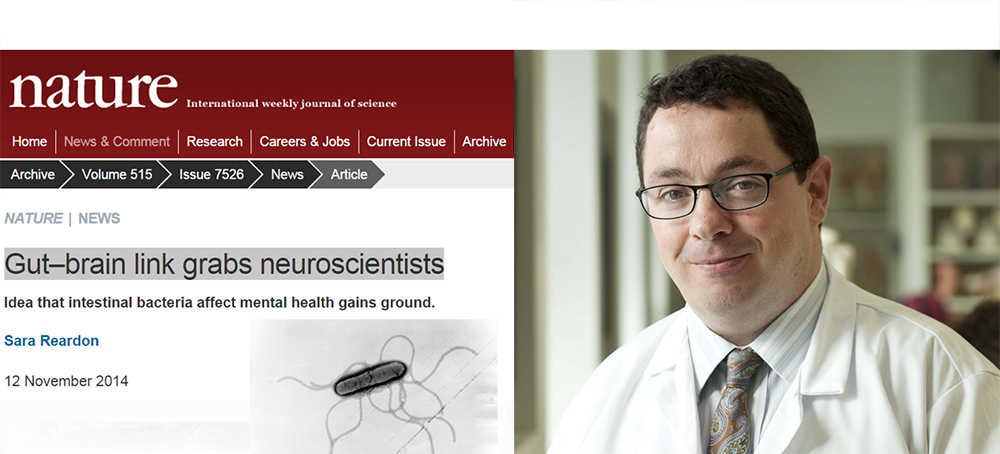In This Section
- Home
- Research & Innovation
- Stories with Impact
- College Team
- Programmes
- Hospital Partners
- Community Partners
- Jennings Gallery
- Graduate Studies
- Programmes for International (Non-EU) Students
- Interprofessional Learning (IPL)
- ASSERT
- Dr Ashleigh Byrne-O’Brien Memorial Fund
- iEd Hub
- Inaugural Professorial Lecture Series
- Learning, Teaching & Curriculum
- Philanthropic Lectures
- UCC Academic Health Sciences
- Continuing Professional Development
Professor Cryan's Research Profiled in Nature

Nature News, Gut–brain link grabs neuroscientists. Idea that intestinal bacteria affect mental health gains ground.
The immune system almost certainly plays a part, Mazmanian says, as does the vagus nerve, which connects the brain to the digestive tract. Bacterial waste products can also influence the brain — for example, at least two types of intestinal bacterium produce the neurotransmitter γ-aminobutyric acid (GABA)2.
The microbiome is likely to have its greatest impact on the brain early in life, says pharmacologist John Cryan at University College Cork in Ireland. In a study to be presented at the neuroscience meeting, his group found that mice born by caesarean section, which hosted different microbes from mice born vaginally, were significantly more anxious and had symptoms of depression. The animals’ inability to pick up their mothers’ vaginal microbes during birth — the first bacteria that they would normally encounter — may cause lifelong changes in mental health, he says.
Academic Health Sciences
Acadúil na nEolaíochtaí Sláinte
Contact us
College of Medicine and Health, 3rd Floor, Erinville Hospital, Western Road, University College Cork, T12 EKDO
